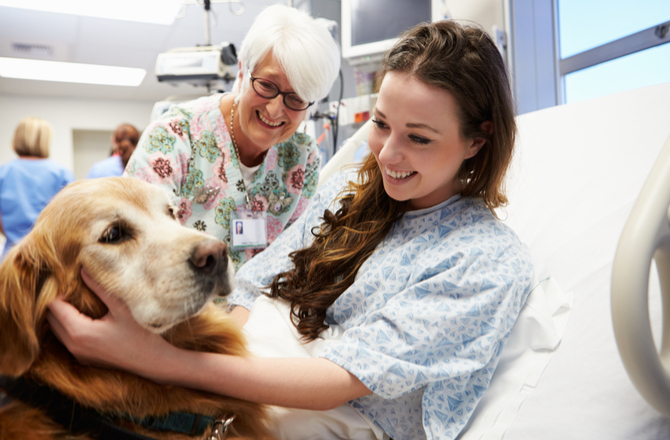Ribera Salud, the health business management group, and the College of Veterinarians of Alicante (Icoval) have introduced a procedure that will allow family pets to visit their owners in hospitals. This is the first such initiative in the Region of Valencia and one of the first across the whole of Spain.
The company, which manages the University Hospitals of Torrevieja and Vinalopó (Elche), made the announcement on a press release on the Ribera Salud website on Tuesday. They say that the measure is in response to requests by patients themselves which they have been trying out for some time
Similar programs are already in place, the “Dogspital” program at the Hospital de Ibiza and the “Can de la mano” program at the Hospital La Fe in Valencia. The Ribera Salud and Icoval program will be the only one in Spain that allows meetings between patients hospitalised with severe pathologies or long-stay patients and their own pets.
In the USA, in Florida or California, where these measures are already well consolidated and regulated, the most recent research shows that the presence of pets brings feelings of tranquillity and relaxationto the patient, as well as the reduction of heart rate or blood pressure.
The Deputy Director of Management in the Torrevieja and Vinalopó hospitals, José David Zafrilla , has expressed his satisfaction with the introduction of the measure, which “has the goal of responding to the needs of patients, who find the company of their pets is a form of relief, offering a reduction of anxiety and improvement of their mood.
Patients wishing to have their pets included in the program will need to make a request to their doctor who will determine the suitability of the application according to medical criteria (after ensuring that there is no risk of worsening or allergic reaction). The doctor will also consider whether it is possible to move the patient to a ‘meeting area’, a place especially established for such a purpose.
Once the doctor’s approval has been obtained, the patient will be informed of the documentation to be provided and it is here that the veterinarian will then assume the leading role, since he will be responsible for ensuring that a sanitary passport certifies that the animal has been properly vaccinated, dewormed and is in good health.
Any costs incurred in obtaining veterinary certification must also be met by the patients.





